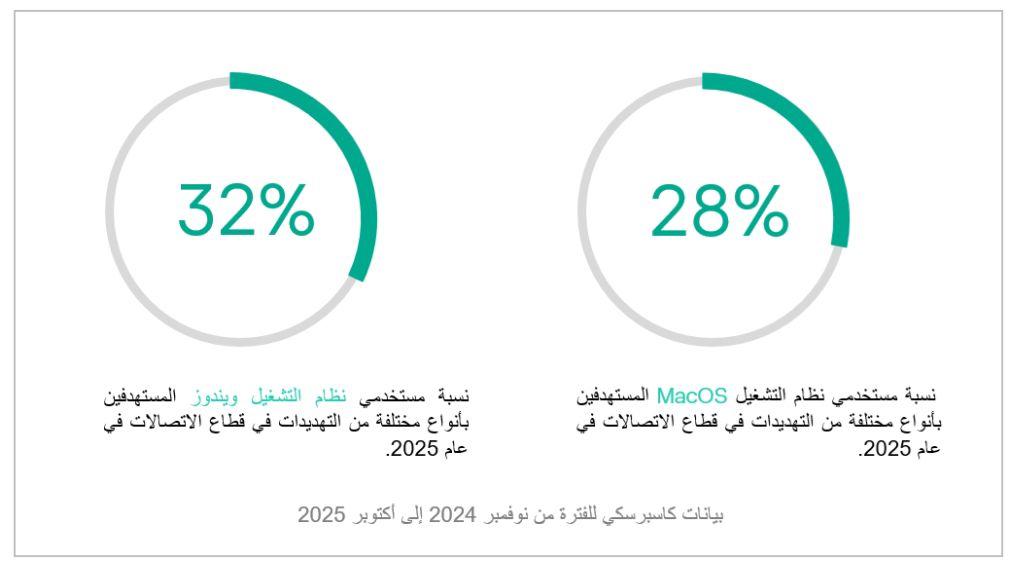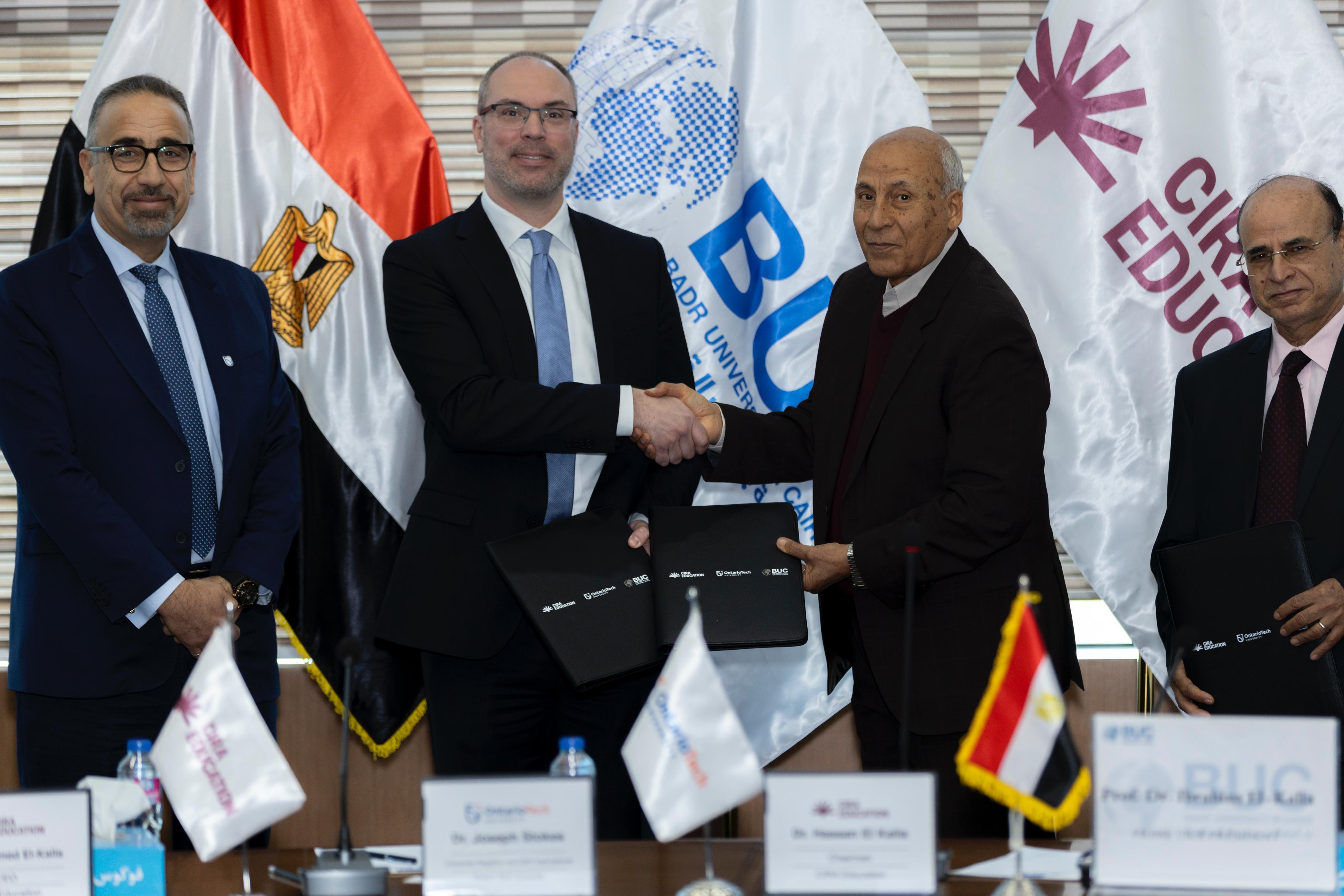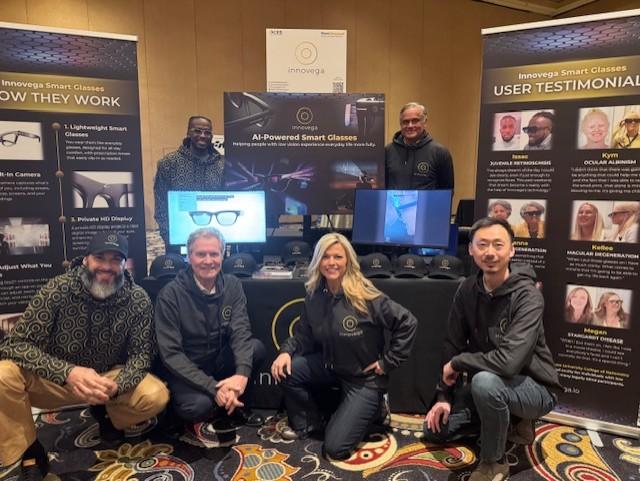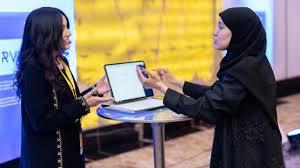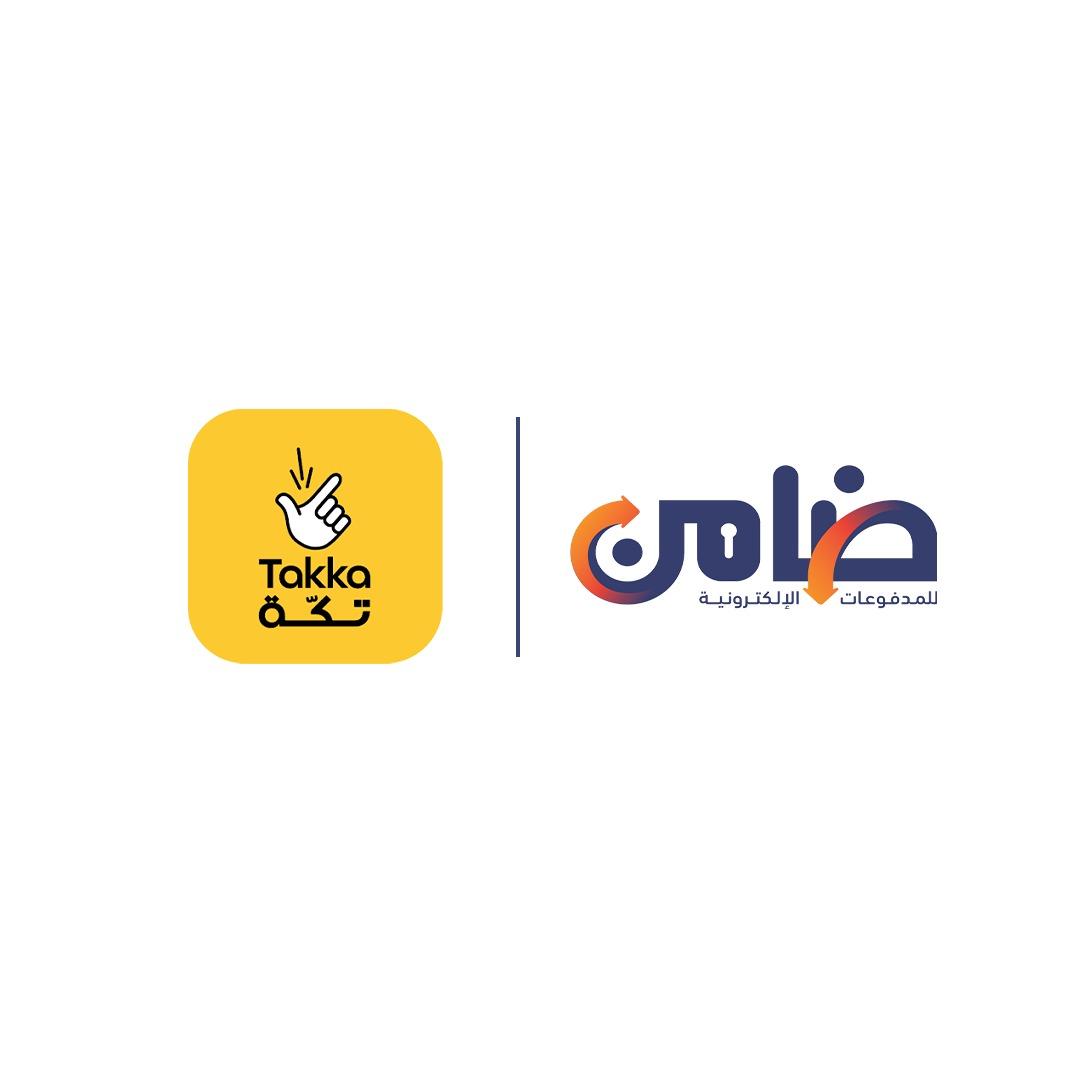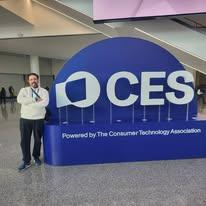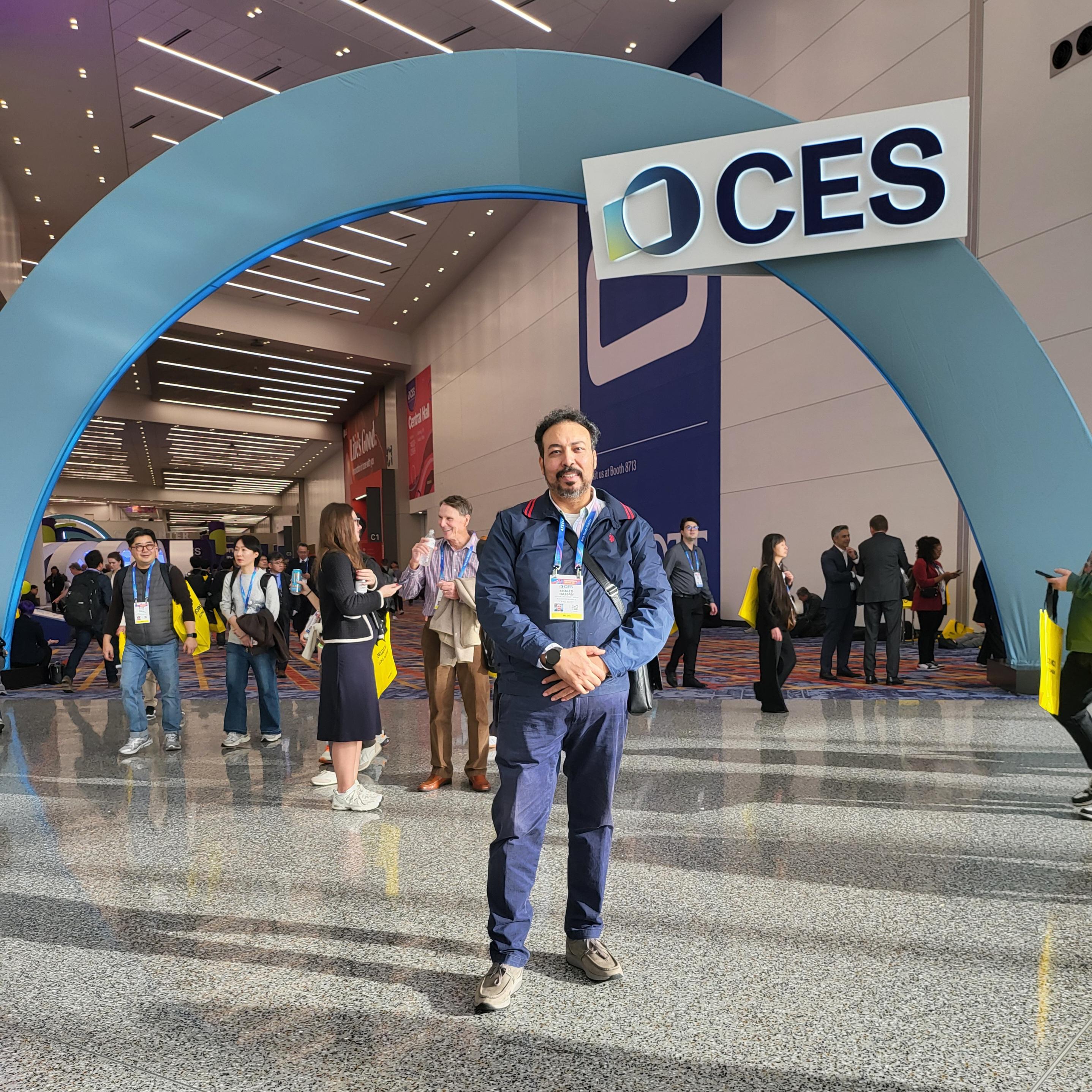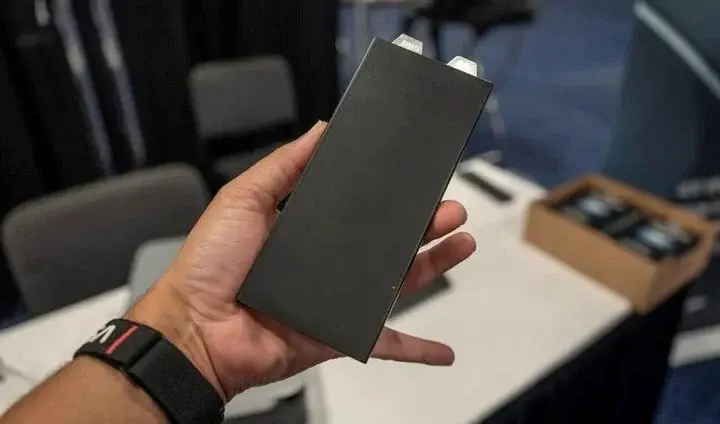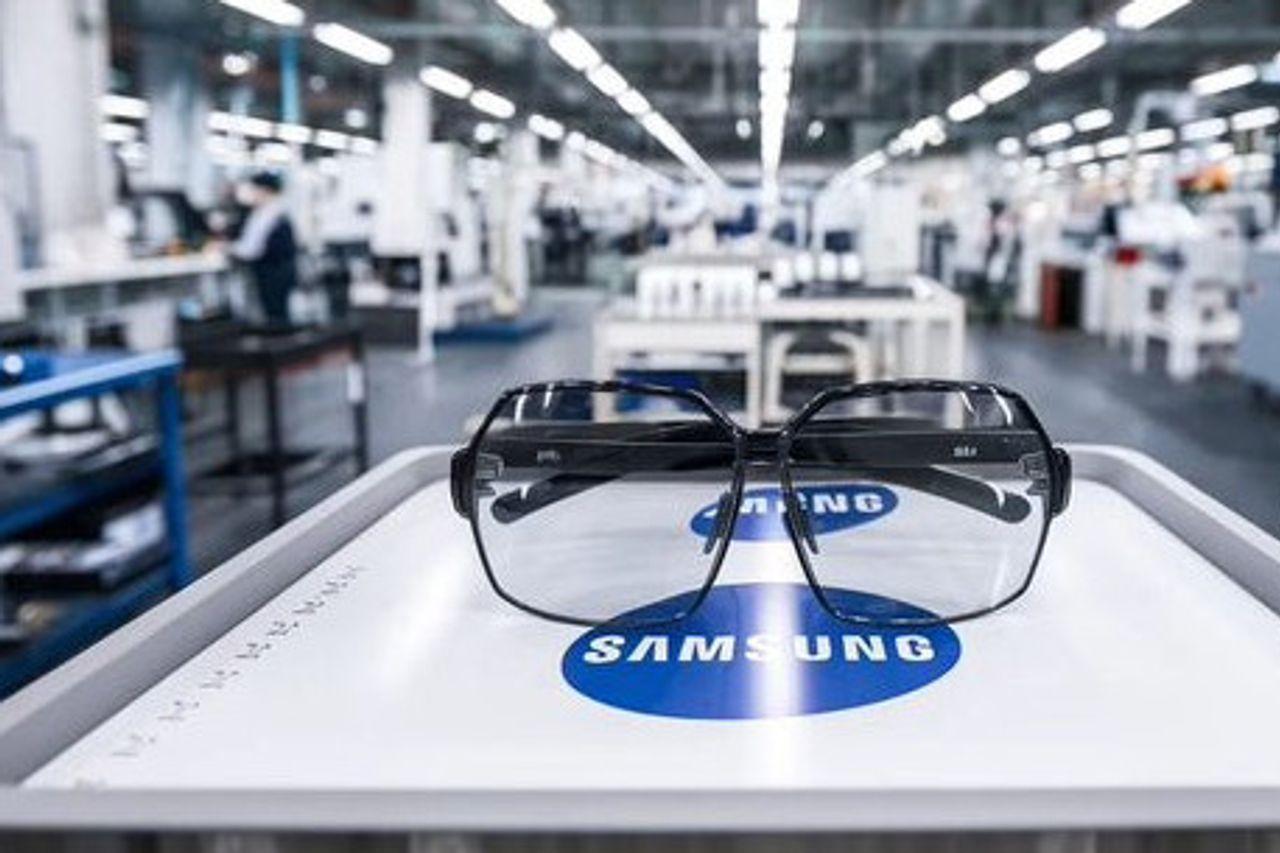-Talaat opens the Tarsa Post Office after its development and inspects the We School of Applied Technology
-Developing the technological infrastructure and spreading digital culture in Hayat Karima villages is an essential pillar for supporting the construction of digital Egypt
By: Sarah Nour El-Din - Wael AlgafarY
Dr. Amr Talaat, Minister of Communications and Information Technology, and Major General Abdel Hamid Al-Hagan, Governor of Qalyubia, toured to open and inspect a number of projects of the Ministry of Communications and Information Technology in Qalyubia Governorate. They inspected the work of laying fiber optic cables and launching high-speed internet services in the villages of Tahanoub and Kafr Shebin, within the villages of Hayat Karima in the governorate, within the framework of the project undertaken by the Egyptian Telecom Company to provide high-speed internet services in the villages of the Hayat Karima initiative, in the presence of Representative Ahmed Badawy, Chairman of the Committee. Communications and Information Technology in the House of Representatives; They were received by Engineer Mohamed Nasr, Managing Director and CEO of Telecom Egypt, and a number of the company’s deputies and leaders.
Dr. Amr Talaat listened to a detailed explanation about the work of implementing communications networks and laying fiber optic cables in the villages of Tahanoub and Kafr Shebin. About 3,303 customers were transferred to Fiber services in Tahanoub village. Meanwhile, about 4,010 customers in the village of Kafr Shebin were transferred to fiber services, ensuring an improvement in the quality of voice and data services provided to customers. The services complex in the village of Kafr Shebin was also connected to the high-speed Internet, and the digital transformation of the post office in the village was implemented.
Dr. Amr Talaat reviewed what was implemented to provide high-speed Internet services to the service complex in the village of Tahanoub and implement the digital transformation process for the Tahanoub Post Office.
Dr. Amr Talaat stressed that developing the technological infrastructure and spreading digital culture in Hayat Karima villages represents an essential pillar for supporting efforts to build digital Egypt. Pointing out his keenness to follow up on the progress of work on the ground in the projects of the Ministry of Communications and Information Technology in Hayat Karima villages in the governorates, which aim to raise the efficiency of communications services and provide high-speed internet services in addition to providing advanced postal services to citizens, and building digital capabilities and digital economic empowerment for the people of Hayat Karima villages. Pointing out the high rates of completion of the Ministry’s projects in Hayat Karima villages in Qalyubia Governorate.
It was completed to connect 29 villages with fiber optic cables out of a total of 36 Hayat Karima villages in Qalyubia Governorate. It is scheduled to complete the connection of 3 others before the middle of this month, and the remaining four villages will be connected after the completion of the work to connect the rest of the facilities. The establishment and efficiency of 31 mobile stations were also completed, out of a total target of 40 mobile stations in the villages of Hayat Karima in the governorate. The development of all post offices in Hayat Karima villages in the governorate, which number about 20 post offices, has also been completed. In addition to being present in 8 government complexes, in addition to 2 postal kiosks and a mobile car for payment at peak times, especially during pension disbursement times; In addition to building the capabilities and digital literacy of more than 4,600 citizens in villages for a decent life in the governorate.
On his part; Major General Abdel Hamid Al-Hagan confirmed that the Presidential Initiative for a Decent Life is the most important national development project in Egypt’s modern history and aims primarily to advance the simple Egyptian person to live a decent life. This great project is considered one of the largest projects adopted by the state to achieve Egypt’s 2030 vision by raising the level of quality. Services provided to citizens in various service sectors in order to achieve the vision of the political leadership to provide a decent life for citizens.
During the tour; Dr. Amr Talaat and Major General Abdel Hamid Al-Hagan, accompanied by Dr. Sherif Farouk, Chairman of the Board of Directors of the National Postal Authority, opened the Tarsa Post Office in the Toukh Center after developing it and providing it with the latest technological systems and solutions. This was in the presence of MP Ahmed Badawy.
Tarsa Post Office provides all integrated governmental, postal and financial services to citizens, such as pension disbursement, real estate registration services, payment of traffic fines, in addition to current accounts, local and international transfers, correspondence and parcel services, and express mail, as well as payment of electricity, water and gas bills, postal savings services, and bill payment service. Landline phone.
Dr. Omar Talaat and the Governor of Qalyubia also visited the WE School of Applied Technology in the Toukh Center, in the presence of MP Ahmed Badawy. The school began operating in the current academic year, and more than 200 male and female students from the governorate applied to join it, and 67 male and female students were accepted after passing a number of tests in the Arabic language, English, and mathematics, as well as ability tests and personal interviews.
In a related context; Dr. Amr Talaat and Major General Abdel Hamid Al-Hagan inspected the Al-Nour School for the Blind and Intellectual Education in Ezbet Al-Ziraa in Banha. In the presence of Representative Ahmed Badawy, they were received by Dr. Abdel Moneim El-Sharqawi, President of the National Academy for Information Technology for Persons with Disabilities, and a number of officials from both the Ministry of Education and Technical Education in the governorate, and the National Academy for Information Technology for Persons with Disabilities, as the technological capabilities of the two schools had previously been developed and provided with The Ministry of Communications and Information Technology accepted some technological programs and provided technical support, represented by supplying them with a number of computers, printers, and optical display screens, to facilitate the educational process for students and provide specialized technological training for teachers.
During the tour; Dr. Amr Talaat reviewed a number of educational activities aimed at developing students’ skills and abilities using technological means






